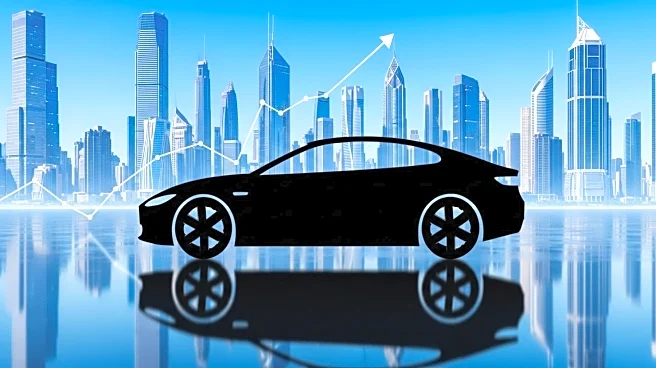What's Happening?
South Africa's used battery electric vehicle (BEV) market has experienced a 63% year-on-year increase in listings from January to June 2025, according to AutoTrader's latest report. This growth is driven by the availability of new BEV models and variants that address consumer needs. Despite high import duties on electric vehicles, which are set at 25% compared to 18% for petrol and diesel vehicles, the market is expanding. The Volvo EX30 emerged as the most-sold BEV during this period, reflecting its popularity in the new vehicle market. The average sold price for BEVs is 5% lower than the average listing price, indicating strong negotiations between buyers and sellers.
Why It's Important?
The increase in used BEV listings is significant for South Africa's automotive industry, as it suggests growing consumer interest in electric vehicles despite financial barriers. High import duties have historically limited BEV adoption, but the rise in used vehicle availability could make electric cars more accessible to a broader audience. This shift may encourage policymakers to reconsider import duty policies, potentially aligning them with those of other African nations that have reduced or eliminated such taxes to promote EV adoption. The growth in the used BEV market also highlights the potential for increased environmental benefits and reduced reliance on fossil fuels.
What's Next?
South Africa is set to see more affordable BEV options entering the market, such as the BYD Seagull/Dolphin Mini/ATTO 1, which is expected to launch in September 2025. Priced competitively at around R350,000, this model could significantly boost BEV sales. The government may face pressure to reduce import duties on electric vehicles to further accelerate adoption. Additionally, the growing number of plug-in hybrid electric vehicles (PHEVs) sold in South Africa suggests a transitional phase for consumers who may eventually opt for full BEVs.
Beyond the Headlines
The expansion of the used BEV market in South Africa could lead to broader societal changes, including increased awareness of sustainable transportation options and a shift in consumer priorities towards environmentally friendly vehicles. This trend may also influence the automotive industry's approach to manufacturing and marketing, as companies adapt to meet the demand for affordable electric vehicles. Furthermore, the government's stance on import duties could have long-term implications for South Africa's position in the global EV market.









